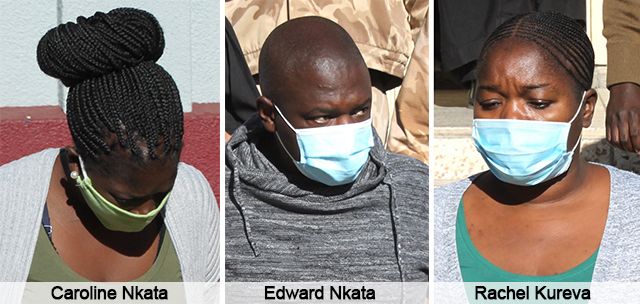Angola and Namibia have enjoyed great relations for decades thanks to colonial resistance activities that initially began between Swapo and the Union for the Total Independence of Angola (Unita) and later with the ruling People’s Movement for the Liberation of Angola (MPLA).
So deep were the ties that the Angolan government risked harbouring Swapo liberation fighters and Namibian refugees, despite apartheid South Africa persistently invading the former Portuguese colony and supporting Jonas Savimbi’s anti-communist rebel movement.
Swapo returned the favour after it came to power in 1990: They offered Angolan citizens the right to use Namibian hospitals and schools and granted them general free movement along the northern border.
In fact, both countries opened up the border for their citizens to travel without the usual cross-country permits within 60 kilometres inland.
Such friendly arrangements are in danger of collapsing.
Over the past couple of years, the Angolan authorities have openly complained that Namibians have been taking advantage of their generosity.
Angola’s beef with Namibia is mainly about land grabbing, with citizens, predominantly from the Ohangwena region, allocating themselves farms – taking communal land and privatising it as farms – and poaching wildlife in Angola’s Cunene province.
“The issue has created unnecessary tension between the residents of southern Angola and the Namibian farmers who graze their cattle there,” Ohangwena governor Sebastian Ndeitunga said last week at a forum set up to try and resolve the problem.
“As a result there were feelings towards the expulsion of Namibian cattle farmers from Angola, based on the accusations that they were not respecting the laws of Angola by allegedly setting up illegal fences and permanent structures in areas where they grazed without the necessary permission of the Angolan authorities,” Ndeitunga said.
The issue is about more than just cattle farming.
It is about the entitlement, greed and devil-may-care attitude of Namibia’s ruling elite, especially those who hail from Namibia’s central north.
At a meeting in January – held by Netumbo Nandi-Ndaitwah, now state vice president, with her then foreign affairs counterpart, Angola’s Tete António – an ordinary communal farmer in Namibia voiced his frustrations about the people who are jeopardising his subsistence grazing in Angola.
The Namibian quoted Peter Shindjala as saying people who have put up illegal fences in Angola are “Swapo politicians and those in government”.
The very same people invaded the Kavango regions and bribed tribal leaders to get large tracts of land, which they fenced off illegally.
After depleting Kavango, they have continued this trend in Angola.
Nandi-Ndaitwah was right to point out that the land grabbers don’t care about nature and environmental conservation. Not only are they depleting grazing pastures, they are wiping out much-needed trees and destroying invaluable natural resources.
In Angola, as happened in Kavango and with the San communities in Otjozondjupa, indigenous residents are being labelled as “useless, lazy, or dumb” not to exploit the land.
Clearly our greedy and shortsighted citizens do not appreciate that their actions have caused permanent damage through desertification.
Leaders like Nandi-Ndaitwah have to deal with the issues more honestly by facing those Swapo comrades and government officials who are among the leading culprits.
Without reining in the culture of greed, the beef with Angola will get out of hand. Not only does it hold dire consequences for the environment, but for future generations of Namibians and Angolans.
Stay informed with The Namibian – your source for credible journalism. Get in-depth reporting and opinions for
only N$85 a month. Invest in journalism, invest in democracy –
Subscribe Now!










